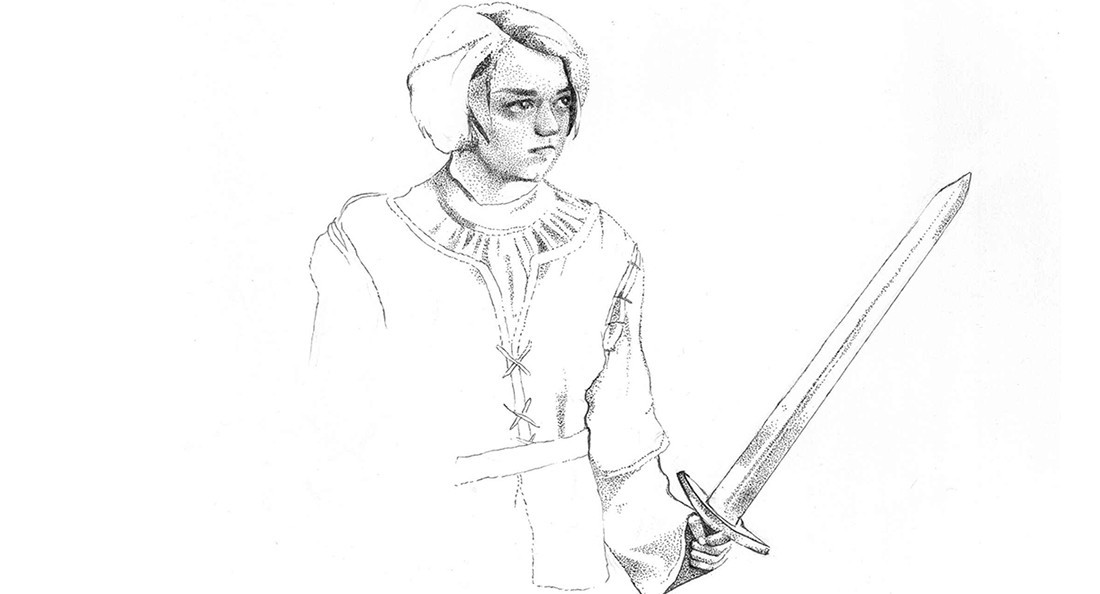Pop culture influences society
Lecture makes room for reflection about imagined futures
Pop culture informs how people make sense of the world. It reveals what society believes about itself, but it can also be used as an instrument for effecting social change.
“It’s an interface with the world and a vehicle (for) education … (it’s) part of that web of narratives that we all exist within, whether we realize it or not,” Dr. Siobhan McEvoy-Levy, professor of political studies and peace and conflict studies at Butler University in Indianapolis, Ind., says. McEvoy-Levy will speak at the upcoming Pop Culture, Peace and Resistance lecture on March 13.
McEvoy-Levy began looking at pop culture as a way to talk to her students about peace studies and engage them with issues they may not have first-hand experience with.
She says that pop culture helps shape how people view social justice, youth activism and international relations, and is used as a tool by activists and policy-
makers.
One of the things she will discuss at the lecture is the way in which Harry Potter and the Hunger Games have been employed in political movements.
For instance, Hunger Games references were made in an anti-fracking protest, while Harry Potter fans opposing Donald Trump compared themselves to Dumbledore’s Army (a student-led group in the series that opposed the new headmaster’s government-endorsed regime by training themselves for the impending combat they recognized).
Dr. Jobb Arnold, professor of conflict resolution studies, explains that social media and the internet have given people the opportunity to share stories in a non-hierarchical fashion. He says that there is room for a variety of perspectives in this discursive space, and helps people imagine diverse futures for society.
For instance, Katherine Vermette’s graphic novel Pemmican Wars exposes the difference between a pre-colonized world and today.
“I think that’s a really interesting question for people in Winnipeg … ‘what does decolonization look like?’” he says.
According to Arnold, western pop culture can be a source of innovative peacebuilding, but these media can also reinforce the liberal status quo. He believes it is important to focus on changing the material conditions that affect people’s lives, building what is known as positive peace (and which includes social thriving), rather than negative peace, which is simply the absence of violence.
According to McEvoy-Levy, a lot of familiar pop culture promotes militarism as a way to peacebuilding. This informs what we learn about human rights and other parts of the world as well.
“These kinds of myths and stories and images reflect how we like to see ourselves as people, as nations and how we see the Other,” she says.
Militarism is reinforced by dominant western pop culture. While it is important to have strong female protagonists, McEvoy-Levy is critical of the way female fighters embody girl power.
Arnold is also critical of militarism.
“Violence and money are the basest and crudest forms of power on display,” Arnold says. “We have to see it for what it is, and not let it get painted with the brush of humanitarianism or building democracies.”
Pop culture is a way of projecting ourselves into the future, and imagining change.
“Fictional futurism is important in the imaginative capacity to imagine something different than what we have,” he says.
McEvoy-Levy explains that young people are often used as symbols in a parent leadership model. She says that this model promotes certain ideas, such as creating social safety nets and promoting education, which can be positive but also infantilizes non-western countries.
The Pop Culture, Peace and Resistance lecture takes place at the Arthur V. Mauro Centre for Peace and Justice at the University of Manitoba on March 13 at 7:30 p.m. There is no admission charge, and it is open to the public.
Published in Volume 72, Number 20 of The Uniter (March 8, 2018)





